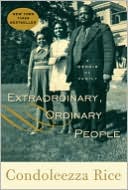If Trouble Don't Kill Me: A Family's Story of Brotherhood, War, and Bluegrass
Search in google:
Making moonshine, working blue-collar jobs, picking fights in bars, chasing women, and living hardscrabble lives . . . Clayton and Saford Hall were born in the backwoods of Virginia in 1919, in a place known as The Hollow. Incredibly, they became legends in their day, rising from mountain-bred poverty to pickin’ and yodelin’ all over the airwaves of the South in the 1930s and 1940s, opening shows for the Carter Family, Roy Rogers, the Sons of the Pioneers, and even playing the most coveted stage of all: the Grand Ole Opry. They accomplished a lifetime’s worth of achievements in less than five years—and left behind only a few records to document their existence. Fortunately, Ralph Berrier, Jr., the grandson of Clayton Hall and a reporter for the Roanoke Times, brings us their full story for the first time in IF TROUBLE DON'T KILL ME. He documents how the twins’ music spread like wildfire when they moved from The Hollow to Roanoke at age twenty, and how their popularity was inflamed by their onstage zaniness, their roguish offstage shenanigans, and, above all, their ability to play old-time country music. But just as they arrived on the brink of major fame, World War II dashed their dreams. Berrier follows the Hall twins as they travel overseas, leaving behind their beloved music, and are thrust into the cauldron of a war that reshaped their lives and destinies. Through the brothers’ experiences, the story of World War II unfolds—Saford fought from the shores of North Africa to Sicily and Europe and finally into Germany; Clayton fought the Japanese in the brutal Pacific theater until the savage, final battle on Okinawa. They returned home after the war to find that the world had changed, music had changed . . . and they had, too. IF TROUBLE DON'T KILL ME paints a loving portrait of a vanishing yet exalted southern culture, shows us the devastating consequences of war, and allows us to experience the mountain voices that not only influenced the history of music but that also shaped the landscape of America. Publishers Weekly Berrier, an award-winning journalist for the Roanoke Times tells the fascinating story of his grandfather Clayton and great-uncle Saford Hall, two Virginia musicians who were playing bluegrass before the term was even coined. The Halls played together until Saford's death in 1999 (he performed his last gig just months before with the help of oxygen), but it was ultimately the draft that cut their promising career short. Before WWII, the band they were part of had played for thousands, released records, and were heard six days a week on regional radio programs; after the war their careers stalled and the brothers took factory jobs to survive. Berrier writes with an appreciation for Appalachia, a colloquial voice ("There were just too many puissant high school boys catting around"), and nostalgia for how things were in his grandfather's time, "the good old days, which you and I will only know through the stories we inherit." But he's not sentimental, noting the darkness inherent in the stories and music, the "unholy communion of desperation, poverty, hunger and violence" in Depression-era Virginia. Copyright © Reed Business Information, a division of Reed Elsevier Inc. All rights reserved.








